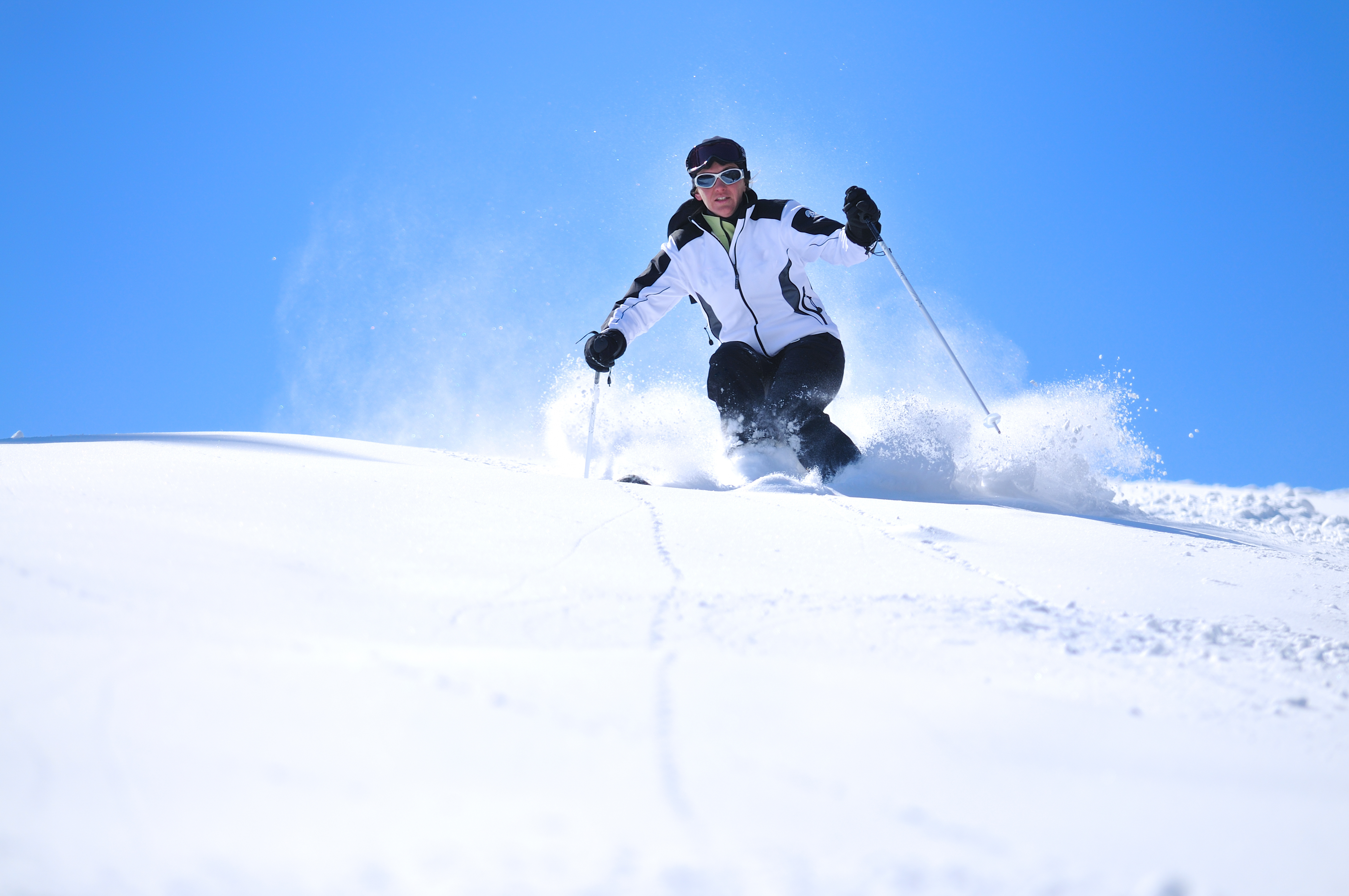
With the Christmas holidays rapidly approaching, many of our clients are already planning their skiing holiday in the New Year.
While I don’t want to put you off your holiday, I feel I should warn you about the risks of skiing, how to prevent them and what to do if the worst happens and you get injured.
Preparing for the slopes
It is very important to prepare and exercise properly a few weeks before you go skiing, to get your body into the best possible shape and reduce your risk of injury in the first place.
Examples of exercises:
- Squats – to get strong gluteal and thigh muscles – both absolutely essential to safe skiing. Strong glutes and quads will also improve your strength and stamina so you can enjoy your skiing for the whole day without tiring.
- Balance exercises (such as standing on one leg or a wobble board if you have one) – to improve your balance. These exercises are useful for helping you turn and move quickly out of the way if an out-of-control skier or snowboarder hurtles towards you! They also help to prevent knee injuries by enabling you to react quickly to prevent a twist or fall.
- Rotation exercises – it’s important to keep your upper body flexible. This can be achieved by holding a number of rotation yoga poses, or you can ask your physio which exercises to do
- Quad and hamstring exercises – to support your knee, a very vulnerable joint when skiing (especially helpful to prevent ACL tears)
Adding some cardio exercises to this exercise routine will also help you to get fit so you can get the most out of your time on the slopes.
Some common skiing injuries
- Anterior Cruciate Ligament (ACL) tear – caused by twisting or forcing the knee too far back beyond the normal ranges of motion (hyper extension).
- Shoulder dislocation – usually occurs if you fall directly on your shoulder joint or onto an outstretched hand.
- Skier’s thumb – when a skier falls and the pole forces the thumb to be jerked suddenly, putting strain on tendons and ligaments.
The most common injury is a tear in the ACL which usually happens when a skier catches an inside edge and the knee twists and puts incredible tension on the ACL, which is the ligament connecting the thigh bone to the shin bone. It can also be combined with a torn meniscus (cartilage) and a sprained medial ligament on the inside of the knee.
RICE: Immediate tips that could save the rest of your skiing holiday
- If the worst happens and you have an injury early on in your holiday, remember these immediate actions using the mnemonic RICE and you may be able to enjoy the rest of your holiday without having to watch your friends have all the fun while you sit at the bottom of the slopes in a café:
- Rest – This is the most important factor for recovering from an acute musculoskeletal injury. Take the strain off the damage as soon as you can, remove your boots and rest up for the remainder of the day. Don’t try carrying on regardless, especially if there’s pain, or you could put yourself out of action for the rest of your holiday.
- Ice – I always take an ice compression wrap or icepack that can be kept in the freezer for emergencies, but even a bag of peas wrapped in a towel will do the trick. Apply ice for 15 to 20 minutes every hour, keeping it clamped to the injured area. This will help control swelling so you can get your ski boots back on sooner.
- Compression – I also take an elasticated sports bandaging with me to give support and reduce swelling to a manageable level. Although some swelling is necessary, controlling it means you can retain more joint function.
- Elevation – If you’ve injured an ankle or knee, put your feet up, resting on a cushion, to help rest the limb and reduce painful swelling.
- The most important piece of advice, if you suspect you’ve suffered a severe injury, is to go and see a doctor as soon as you can. This is especially important if you think you’ve dislocated your shoulder, to prevent nerve damage. Make sure you pack your EHIC card if you’re skiing in the EU.
For more information and exercises on how to prevent or treat injuries while skiing, you can call us on 01730 267645 or email Petersfield Physiotherapy and Sports Clinic. We’d be happy to help because we want you to get the most out of your skiing holiday.

Recent Comments